3-Day-Personality Disorders Certificate Course-Advanced Diagnosis, Treatment and Management – Gregory Lester
Original price was: $499.99.$151.00Current price is: $151.00.
3-Day-Personality Disorders Certificate Course-Advanced Diagnosis, Treatment and Management – Gregory Lester Download. Imagine the feeling of success the n…
Salepage link: At HERE. Archive:
You know that feeling of tension and anxiety that creeps in after looking down at your schedule and you see THAT client coming in today? The one you secretly dread and hope is a no-show, though here they are, ready and waiting to see you. Or what about the agony of a session that seems to go in circles, leaving you frustrated with no idea what just happened?
How do you differentiate between mental health symptoms and a personality disorder? How do you get past the fear and self-doubt of diagnosing a personality disorder?
In this recording, renowned personality disorders expert, Dr. Gregory W. Lester, answers these questions and guides you through the dramatically different ways necessary to effectively work with personality disordered individuals. You’ll discover everything you need to breakthrough with your most difficult clients.
Imagine the feeling of success the next time that frustrating client is in your office and you’re able to keep the session on track. The empowerment of being equipped with a psychological toolkit of practical interventions that allow you to make clinical gains, rather than putting out fires. The confidence of making an accurate personality disorder diagnosis and knowing you are on the right path with treatment.
Don’t get blindsided or caught up in the drama of difficult clients – gain clarity and confidence in this intensive training with cutting-edge techniques to diagnose, treat, and manage all 10 personality disorder types.
Don’t miss out – this practical, hands-on certificate course is a must-have training for all clinicians!
- Communicate the difference between personality disorder and psychiatric disorder as it relates to clinical treatment.
- Articulate the underlying structure of disordered personality and its clinical implications.
- Assess individuals with personality disorders to clinically distinguish and put to practical use in session.
- Explain why diagnosis is the critical element to effective clinical treatment for clients with personality disorders.
- Compare different types of personality disorders to accurately identify and inform clinical treatment interventions.
- Evaluate significant problems typically created by clients with personality disorders and utilize clinical strategies for symptom management.
- Implement the framework for successful treatment and management of clients with personality disorders.
- Compare the different intervention models as it relates to treatment outcomes.
- Demonstrate the most effective aspect of the intervention models to improve client level of functioning.
- Identify effective targeted interventions to improve treatment outcomes with personality disordered clients.
- Implement empirically validated treatment interventions for clients with personality disorders.
- Explore the management models of interventions for clients with personality disorders.
- Explain common co-occurring conditions in relation to assessment and treatment planning.
- Determine clinical interventions for reduction of self-harm behaviors.
- Recommend interventions to manage suicide risk in clients with personality disorders.
- Differentiate personality disorders in children and adolescents to inform the clinician’s choice of treatment interventions.
- Adapt treatment strategies for working with personality disorders in couples and familtherapy.
- Summarize clinical strategies for working with the significant others of individuals with personality disorders.
The Essentials of Advanced Assessment & Treatment Effectiveness: Fill in the missing pieces and create a treatment plan that works
- The Distinction “Personality Disorder”
- Why traditional models of mental health don’t fit
- “Symptomatic” conditions vs. “characteristic” conditions
- The underlying structure of disordered personality
- What makes a personality disorder a chronic condition?
- Why personality disordered people think “it’s everybody else”
- Why “normal” talking with personality disordered people is ineffective
- The Effects of a Personality Disorder
- How personality disordered people create difficulties for themselves and others
- The difference in life pattern between “normal” and “disordered” personality
- How to predict the behavior of individuals with personality disorders
- The type of chaos created by
- Cluster A personalities
- Paranoid Personality Disorder
- Schizoid Personality Disorder
- Schizotypal Personality Disorder
- Cluster B personalities
- Antisocial Personality Disorder
- Borderline Personality Disorder
- Histrionic Personality Disorder
- Narcissistic Personality Disorder
- Cluster C personalities
- Avoidant Personality Disorder
- Dependent Personality Disorder
- Obsessive-Compulsive Personality Disorder
- Cluster A personalities
- Assessment and Diagnosis of Personality Disorder
- Why diagnosis is EVERYTHING in treatment of personality disorders
- 5 steps to identify and diagnose a personality disorder
- Effective, brief, and rapid identification
- Tests and clinical instruments
- Why the Etiology of Personality Disorders Matters in Treatment
- The single biggest mistake clinicians make regarding etiology
- Why misunderstanding etiology will disable interventions
- What causes personality disorders – the definitive conclusion
- Treating vs. Managing Personality Disorders
- Predicting “treatability” of a personality disordered client
- Critical preparation to determine the proper intervention approach
- How to choose an intervention approach
- The structure that makes all interventions effective
- Two common techniques
- Develop effective treatment goals for Cluster A, B, and C personalities
Advanced and Empirically Validated Intervention Approaches in Action: A step-by-step plan to implement the most appropriate treatment strategy
- Select Intervention Based on “Treatability” Level of Client
- Optimal functioning
- Mentalization-Based Treatment
- Transference-Focused Psychotherapy
- Interpersonal Reconstructive Psychotherapy
- Object Relations Developmental Psychotherapy
- Adequate functioning
- Dialectical Behavior Therapy
- Schema-Based Treatment
- Personality-Guided Psychotherapy
- Targeted behavior improvement
- Tactical Therapy
- Strategic Therapy
- Structural Therapy
- Limitations and risks of the psychotherapeutic approaches
- Optimal functioning
- 4-Step Approach to Effective Personality Disorder Treatment
- Engage the treatment relationship
- Apply two fundamental treatment techniques
- Determine category of treatment
- Utilize approach based on client’s diagnosis and treatment goals
- 3-Step Approach to Effective Personality Disorder Management
- Foundation to inhibit disordered behavior
- Implement contingency
- Utilize approach specific to client’s diagnosis
- 3 Must-Have Intervention Techniques for Personality Disorders
- Behavioral Chain Analysis
- Mentalizing interpretations
- Problem-solving process confrontations
Special Issues with Personality Disorders
- Interventions for Co-occurring Conditions
- Typical co-occurring disorders for the 10 subtypes
- Sequencing interventions for co-occurring conditions
- Medication do’s and don’ts with personality disorders
- Crisis Management: Self-Harm and Suicide Interventions
- Fundamental misunderstandings
- Physiological effects and motivations
- Interventions to reduce or eliminate self-harm
- Harvard’s three distinctions of suicidality
- Interventions for chronic suicidal ideation
- Treatment approaches for acute suicidality
- Unique Considerations
- Personality disorders in children and adolescents
- Intervention modifications
- Couples and family therapy interventions
- Special procedures for interventions
- Working with significant others of a personality disordered individual
- Methods to help them stay out of difficulties
- Coach for effective management
- Self-care for significant others
- Personality disorders in children and adolescents
Here's an overview of the prominent keywords and a list of famous authors:
Business and Sales: Explore business strategies, sales skills, entrepreneurship, and brand-building from authors like Joe Wicks, Jillian Michaels, and Tony Horton.
Sports and Fitness: Enhance athleticism, improve health and fitness with guidance from experts like Shaun T, Kayla Itsines, and Yoga with Adriene.
Personal Development: Develop communication skills, time management, creative thinking, and enhance self-awareness from authors like Gretchen Rubin, Simon Sinek, and Marie Kondo.
Technology and Coding: Learn about artificial intelligence, data analytics, programming, and blockchain technology from thought leaders like Neil deGrasse Tyson, Amy Cuddy, and Malcolm Gladwell.
Lifestyle and Wellness: Discover courses on holistic health, yoga, and healthy living from authors like Elizabeth Gilbert, Bill Nye, and Tracy Anderson.
Art and Creativity: Explore the world of art, creativity, and painting with guidance from renowned artists like Bob Ross and others.
All the courses on WSOlib are led by top authors and experts in their respective fields. Rest assured that the knowledge and skills you acquire are reliable and highly applicable.
Specification: 3-Day-Personality Disorders Certificate Course-Advanced Diagnosis, Treatment and Management – Gregory Lester
|
User Reviews
Only logged in customers who have purchased this product may leave a review.

Original price was: $499.99.$151.00Current price is: $151.00.

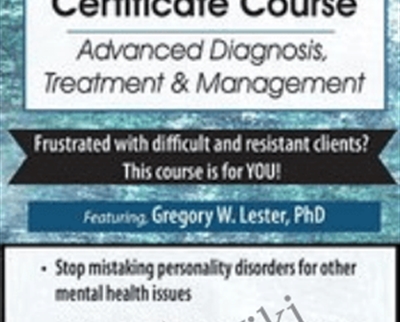





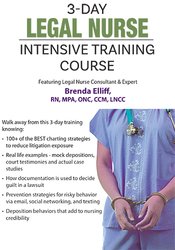
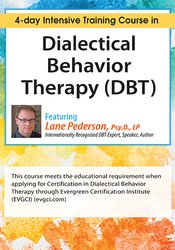

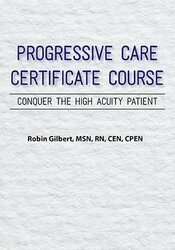
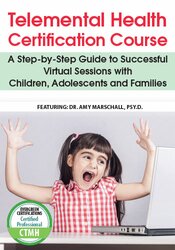
There are no reviews yet.